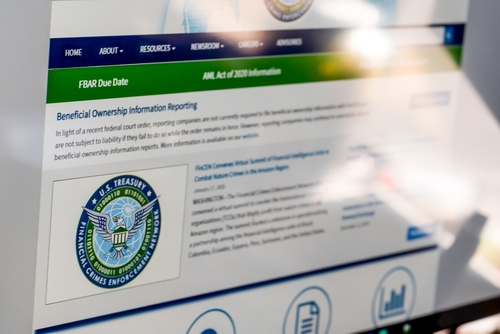
Dear Clients and Friends,
We are pleased to share highlights of key regulatory updates, proposed legislation, enforcement events, and court decisions pertaining to international trade regulation over the third quarter of 2025. These developments may affect compliance requirements for companies operating in Israel and abroad.
Regulatory Updates | Proposed Regulation | Enforcement Updates | Court Decisions
REGULATORY UPDATES
Expanded EU Sanctions against Russia and Belarus
On July 19, 2025, the European Union adopted its 18th sanctions package against Russia. The comprehensive package is multifaceted, including: targeting Russia’s energy revenue by lowering the price cap for crude oil (along with the UK and Canada) and banning imports on refined petroleum products made from Russian crude oil when coming from non-exempt third countries; imposing further sanctions against Russian and Russia-related entities, including 22 new banks and those involved in Russian financial services, as well as entities involved in supplying Russia’s military industrial complex; expanding export controls and restrictions to cover goods contributing to Russia’s industrial capacities as well as by adding a “catch-all” provision which states may use to require exporters to apply for authorization if items are or may be intended for use in Russia; and tightening enforcement by adding 26 new entities to the restricted list, including those in third countries that are facilitating the circumvention of export restrictions, particularly concerning unmanned aerial vehicles (UAVs). The package also adopted additional restrictions against Belarus. Following the latest sanctions package, the EU updated its FAQ’s, providing guidance on sanctions compliance.
US Employs Tariffs against India related to Russia Sanctions Framework
On August 6, 2025, the White House published Executive Order “Addressing Threats to the United States by the Government of the Russian Federation,” which places an additional 25% tariff rate on most imports from India. The tariffs come, among other things, in response to India importing Russian Federation oil, despite US restrictions. The move is the first time the Trump administration has utilized tariffs as a measure to penalize actions of foreign countries that run contrary to US sanctions. It has been called “secondary tariffs” due to its similarity to the US’s use of secondary sanctions against foreign persons engaging with entities sanctioned under US programs and prohibited for US persons. The precedent may translate into additional pressure by states on domestic companies and persons to comply with US sanctions so as to avoid US punitive measures.
US Department of Defense Institutes Conflict of Interest Rule for Certain Consulting Services
On August 25, 2025, the US Department of Defense (DoD) issued a new rule effective October 24, 2025, as part of the Defense Federal Acquisition Regulation Supplement (DFARS), prohibiting the award of DoD contracts for consulting services to any contractor that also holds consulting contracts with covered foreign entities—primarily the governments of China and Russia and sanctioned parties. If a contractor cannot certify that it is free of foreign consulting contracts, it must maintain an auditable conflict-of-interest mitigation plan to remain eligible for the DoD contract award. This rule effectively creates a regulatory firewall, forcing contractors to choose between maintaining high-level contracts with the DoD and engaging in certain types of work with Chinese or Russian government-linked parties.
Continued Easing of Sanctions and Export Control Restrictions on Syria
On September 2, 2025, the US Department of Commerce’s Bureau of Industry and Security (BIS) published a new final rule relaxing certain restrictions under the US Export Administration Regulations (EAR) on exports and reexports to Syria. The rule expands eligibility under existing license exceptions for civilian and commercial activities in Syria, including allowing EAR99 items to be exported to Syria without a license, while maintaining controls on sensitive items and end users. The move comes in continuation of steps in recent months, such as the June US Executive Order, “Providing for the Revocation of Syria Sanctions“, and the August OFAC rule amending the Syrian Sanctions Regulations, which have removed, relaxed, and reframed certain existing sanctions against Syria. As restrictions on trade with Syria have been easing globally, it is essential to note that Israel’s Trading with Enemy Ordinance still lists Syria as an enemy state, and thereby still widely prohibits engagements with Syria absent a special permit.
US Department of State Amends ITAR, Updates US Munitions List (USML)
On August 27, 2025, the US Department of State amended the International Traffic in Arms Regulations (ITAR), which, among other things, expands the US Munitions List (USML) and creates new licensing exemptions to address emerging technologies and streamline approvals for allies. A fact sheet of the changes can be found here. These changes may require defense exporters to update classifications and compliance programs and be mindful of new controls.
EU Updates Dual-Use Export Control List
On September 8, 2025, the EU announced updates to its dual-use export control list. The updates add new controls targeting emerging technologies such as specialized equipment for quantum computing and quantum technology, materials and equipment used in advanced semiconductor manufacturing and testing, and advanced computing electronic assemblies and integrated circuits. In continuation of the EU’s 2024 White Paper on Export Controls, which noted Russia’s limiting effect on multilateral export control regimes, the updates exceed those agreed upon under relevant control groups (ie, WA, MTCR, etc.) by also including commitments undertaken by member states independent of such groups. An overview of the changes can be found here, and are expected to be effective following a two-month review period. Israel’s Export Control Agency at the Ministry of Economy and Industry has noted and highlighted the changes in control lists to Israeli exporters.
Spain Introduces Unilateral Defense and Dual-Use Trade Controls on Israel
Further to its position on the war in Gaza, Spain’s Council of Ministers approved a series of unilateral trade embargoes on Israel, issued on September 23 under Royal Decree-Law 10/2025. The first measure under this legislation is a ban on exports to and imports from Israel of both defense items and dual-use items. The regulation revokes trade authorizations that were in force and prohibits authorizations that were pending at the time of the issuance of the regulation, but allows for authorizations of banned items in exceptional circumstances when the prohibition would harm national general Spanish interests. This legislation was approved by the Lower House of Parliament within the required 30-day period.
BIS Introduces “Affiliates Rule” Extending Restrictions to 50%-Owned Subsidiaries
On September 29, 2025, the US Department of Commerce’s Bureau of Industry and Security (BIS) published an Interim Final Rule expanding the Entity List and Military End-User (MEU) List to automatically include foreign entities owned 50% or more, directly or indirectly, by one or more listed parties, imposing the same licensing requirements and presumptions of denial. The rule is modeled after the Department of the Treasury’s Office of Foreign Assets Control’s (OFAC) 50 percent ownership rule for the Specially Designated Nationals and Blocked Persons List (SDN List). In addition, BIS has added a red flag requiring additional due diligence requirements for exporters engaging with entities with significant minority ownership by an Entity List or MEU list entity. Earlier in September, BIS added 32 entities to the Entity List, with 23 from China, and the remaining from India, Iran, Singapore, Taiwan, Turkey, and the UAE.
The rule was effective as of its publication on September 29, 2025, with narrow temporary general licenses for ongoing activities with newly covered affiliates expiring on November 28, 2025. As such, it is important for companies to immediately take steps to align themselves with the new restrictions both in terms of assessing potential exposure, updating screening and vetting processes, and revising contractual language and terms of use.
Israel’s Export Control Agency of the Ministry of Economy and Industry Updates Dual Use Control List
Following the Wassenaar Arrangement’s 2024 updates to its List of Dual Use Goods and Technologies, Israel’s Ministry of Economy and Industry has announced that it has updated its Dual Use Control List in accordance with the changes. Israel’s MOE updates its control list nine months after the initial updates under the Wassenaar Arrangement so as to give exporters time to adjust to the planned changes. The updates went into effect on October 1, 2025.
PROPOSED REGULATIONS
US Announces AI Action Plan
On July 23, 2025, the White House published “Winning the AI Race: America’s AI Action Plan,” aimed at creating a sweeping national strategy document for maintaining US leadership in Artificial Intelligence (AI) and counteracting rival influence globally. The plan’s third pillar, “Lead in International AI Diplomacy and Security,” outlines an aggressive strategy that would directly impact international trade compliance. The plan details critical policy actions to strengthen the US export control regime, specifically noting the critical nature of export controls on AI computing items. It mandates the Department of Commerce’s Bureau of Industry and Security (BIS) to enhance the enforcement of existing AI-related export controls. Furthermore, BIS is instructed to review existing controls on semiconductor manufacturing equipment to “plug any loopholes”. While the plan is focused on policy and strategy, and is not binding, it presents a road map of what may be to come with export controls and other restrictions.
UK OFSI Proposes Changes to Sanctions Enforcement Processes
On July 22, 2025, the UK Office of Financial Sanctions Implementation (OFSI) launched a consultation process to review proposed significant reforms aimed at improving its sanctions enforcement processes. Among the changes, OFSI seeks to introduce a formal settlement scheme for monetary penalty cases, offering reduced penalties in exchange for early resolution and acceptance of OFSI’s findings, as well as an Early Account Scheme (EAS), which would function as a new voluntary process designed to expedite investigations by encouraging firms to submit a complete factual account of breaches within six months for potential higher penalty discounts. OFSI is also seeking to raise the statutory maximum penalty amount while reducing the maximum voluntary disclosure discount, introduce a streamlined process with indicative penalties for less serious technical breaches relating to information, reporting, and licensing obligations, and change its case assessment matrix. The consultation period closed on October 13, 2025. Companies are likely to see changes in OFSI’s enforcement mechanisms in the coming months.
Enforcement Updates
DOJ and BIS Announce $140 million Settlement with Cadence Design Systems for Export Control Violations
On July 28, 2025, the US Department of Justice (DOJ) and the Bureau of Industry and Security of the US Department of Commerce announced that Cadence Design Systems Inc., an electronic design automation (EDA) company, agreed to plead guilty and pay over $140 million to resolve criminal export control violations. The charges stemmed from selling controlled Electronic Design Automation (EDA) hardware and software and semiconductor design technology to parties on the US Department of Commerce’s Entity List. Cadence admitted to having transferred sensitive US technology via its Chinese subsidiary to entities developing supercomputers supporting China’s military and nuclear weapons programs. Cadence has admitted to over 50 violations of the EAR between 2015 and 2020 with knowledge or reason to know that their exports would be to entity list entities, including those operating through an alias. The magnitude of this penalty underscores the US government’s continued focus on the semiconductor and advanced technologies arena and reemphasizes the importance of compliance strategies for companies operating in the Chinese markets.
OFAC Announces $11.8 million Settlement with Interactive Brokers LLC for Sanctions Violations
On July 15, 2025, the US Department of the Treasury’s Office of Foreign Assets Control (OFAC) announced an $11.8 million settlement with Interactive Brokers LLC (IB) for apparent violations of multiple sanctions programs over eight years. The penalty, which was significantly reduced due to voluntary self-disclosure and substantial cooperation, stemmed from numerous transactions that resulted from significant compliance failures. The apparent violations included providing brokerage and investment services to customers in Iran, Cuba, Syria, and the Crimea region of Ukraine, engaging in new investment in the Russian Federation, processing trades in securities prohibited under the Chinese Military-Industrial Complex sanctions program, and transactions involving blocked persons under OFAC’s various sanctions programs. The case highlights critical compliance deficiencies, including a failure to adequately audit geo-blocking controls and a delay in obtaining ownership information of sanctioned entities to comply with OFAC’s 50 Percent Rule.
COURT DECISIONS
Israeli District Court Requires Reasonableness in Complying with International Sanctions
On September 3, 2025, the Tel-Aviv District Court held in the matter of Davidovitch v. Bank Hapoalim that the bank must consider the implications of Russia-related UK and Canadian sanctions on its clients on a case-by-case basis. While a decision to automatically freeze all activity in an Israeli account of a client subject to such sanctions without prior notice to a customer was considered an unreasonable and disproportionate reaction by the bank, the court recognized the bank’s need to mitigate its own risks. Moreover, the court distinguished between the reasonableness of providing basic, essential banking services for individuals with an existing account, based on Israel’s Banking (Service to Customer) Law 5741-1981, and repurposing a personal account for international business.
This memorandum provides access to certain material developments in the field of international trade regulation. It contains only a summary and does not cover all updates that occurred in the third quarter of 2025. The information in this memorandum is provided as general information only and should not be relied upon in any specific case without additional legal advice.








